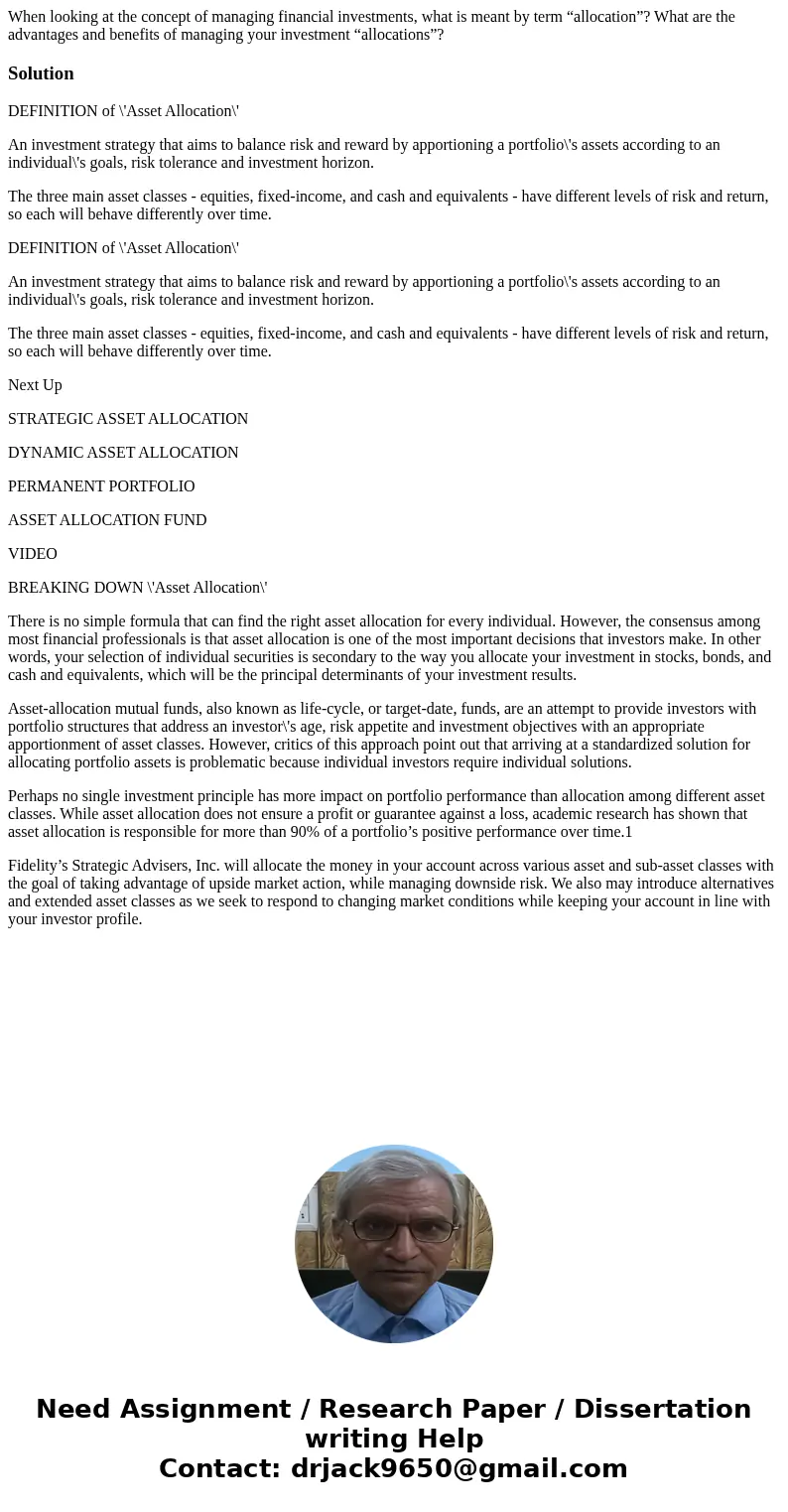When looking at the concept of managing financial investment
When looking at the concept of managing financial investments, what is meant by term “allocation”? What are the advantages and benefits of managing your investment “allocations”?
Solution
DEFINITION of \'Asset Allocation\'
An investment strategy that aims to balance risk and reward by apportioning a portfolio\'s assets according to an individual\'s goals, risk tolerance and investment horizon.
The three main asset classes - equities, fixed-income, and cash and equivalents - have different levels of risk and return, so each will behave differently over time.
DEFINITION of \'Asset Allocation\'
An investment strategy that aims to balance risk and reward by apportioning a portfolio\'s assets according to an individual\'s goals, risk tolerance and investment horizon.
The three main asset classes - equities, fixed-income, and cash and equivalents - have different levels of risk and return, so each will behave differently over time.
Next Up
STRATEGIC ASSET ALLOCATION
DYNAMIC ASSET ALLOCATION
PERMANENT PORTFOLIO
ASSET ALLOCATION FUND
VIDEO
BREAKING DOWN \'Asset Allocation\'
There is no simple formula that can find the right asset allocation for every individual. However, the consensus among most financial professionals is that asset allocation is one of the most important decisions that investors make. In other words, your selection of individual securities is secondary to the way you allocate your investment in stocks, bonds, and cash and equivalents, which will be the principal determinants of your investment results.
Asset-allocation mutual funds, also known as life-cycle, or target-date, funds, are an attempt to provide investors with portfolio structures that address an investor\'s age, risk appetite and investment objectives with an appropriate apportionment of asset classes. However, critics of this approach point out that arriving at a standardized solution for allocating portfolio assets is problematic because individual investors require individual solutions.
Perhaps no single investment principle has more impact on portfolio performance than allocation among different asset classes. While asset allocation does not ensure a profit or guarantee against a loss, academic research has shown that asset allocation is responsible for more than 90% of a portfolio’s positive performance over time.1
Fidelity’s Strategic Advisers, Inc. will allocate the money in your account across various asset and sub-asset classes with the goal of taking advantage of upside market action, while managing downside risk. We also may introduce alternatives and extended asset classes as we seek to respond to changing market conditions while keeping your account in line with your investor profile.

 Homework Sourse
Homework Sourse